
Transcription
HARLAN RICHARDS
June 11, 2012
Five Tips to Help You Get Your Poems Published
Many of us poets want to share our work with others and the best way to do that is by getting published. Here are five things every poet can do to increase the likelihood of getting published.
1. Type your poems
Each of us has our own method for creating poems—writing in a journal, typing on a computer, notes on scraps of paper. Whatever you do, when it comes time to submit your poems, they need to be typed and formatted properly. No poetry editor wants to try to decipher your chicken scratchings. Type your poems, format them properly, and make them visually appealing.
2. Get your spelling, grammar, and punctuation right.
Nothing irritates an editor more than misspelled words, improper grammar, and inconsistent punctuation. Poetry has a more relaxed set of rules than prose, and what may be unacceptable in an essay can be part of the creativity of poetry writing. But even so, it is still necessary to spell words correctly, use consistent punctuation, and proper grammar—unless, of course, the variation is intentional, consistent, and integral to the meaning of the poem.
3. Research the market to find a publication that fits your style.
Each print-based poetry journal or online publication has its own distinct personality. There are multiple styles and types of poems, and many publishers focus on a specific type or style. It is pointless to submit free verse to a publisher of sonnets or submit experimental poems to a journal whose focus is nature poems. If possible, at least read the guidelines or a description of the journal to make sure your poems are a good fit for the type of poem the editors want.
4. Follow submission instructions.
It seems self-evident that if you want to get published, you should follow the submission guidelines. It doesn't matter how good your poems are: if the editor asks you to submit them via a website, a postal submission will get rejected without considering the content. If a cover letter and bio are requested, then include them. When making postal submissions, always include a self-addressed stamped envelope (SASE). Some editors could care less if you have ever been published. Others want to know where (and how often) you have been published. So find the guidelines and follow them.
5. Track your submissions and follow up on them.
Most poetry editors don't seem to feel constrained by any time limits when it comes to responding to poets. Poems can be reviewed in a week or two by some editors while other editors are still sitting on submissions over a year later. You should create a database listing who you submitted your poems to, the date of submission, and what poems were submitted. When a response is received, log the date of receipt and the outcome.
Your system can be as complex or as simple as you want. A notebook works just as well as an Excel spreadsheet. Another good idea is to keep copies of your cover letter and the poems which were submitted in a separate file—at least until a response is received. This helps avoid inadvertently submitting the same poem to multiple editors at the same time. Many editors do not want simultaneous submissions (or previously published poems). There are exceptions, of course, and for those it is fine. My personal policy is to never do simultaneous submissions or resubmit a poem that has already been published.
Finally, if no response has been received in what you consider to be an adequate length of time, send a follow-up letter asking the editor the status of your submission. I usually wait a year and if I don't get a response, I send a letter formally withdrawing my poems from consideration. I am then able to submit them elsewhere without worrying about simultaneous submissions. My feeling is that any editor who takes longer than a year to respond either has more submissions than he or she knows what to do with or is not too interested in your poems. Either way, you are generally better off sending your poems elsewhere.
Hopefully, these five tips will help you get your poems published. Good luck, and keep writing poems.
Other posts by this author
|
2021 jun 25

|
2021 may 25

|
2021 apr 23

|
2021 feb 19
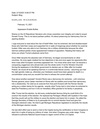
|
2021 feb 17
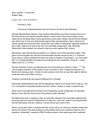
|
2021 feb 15
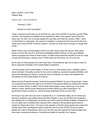
|
More... |
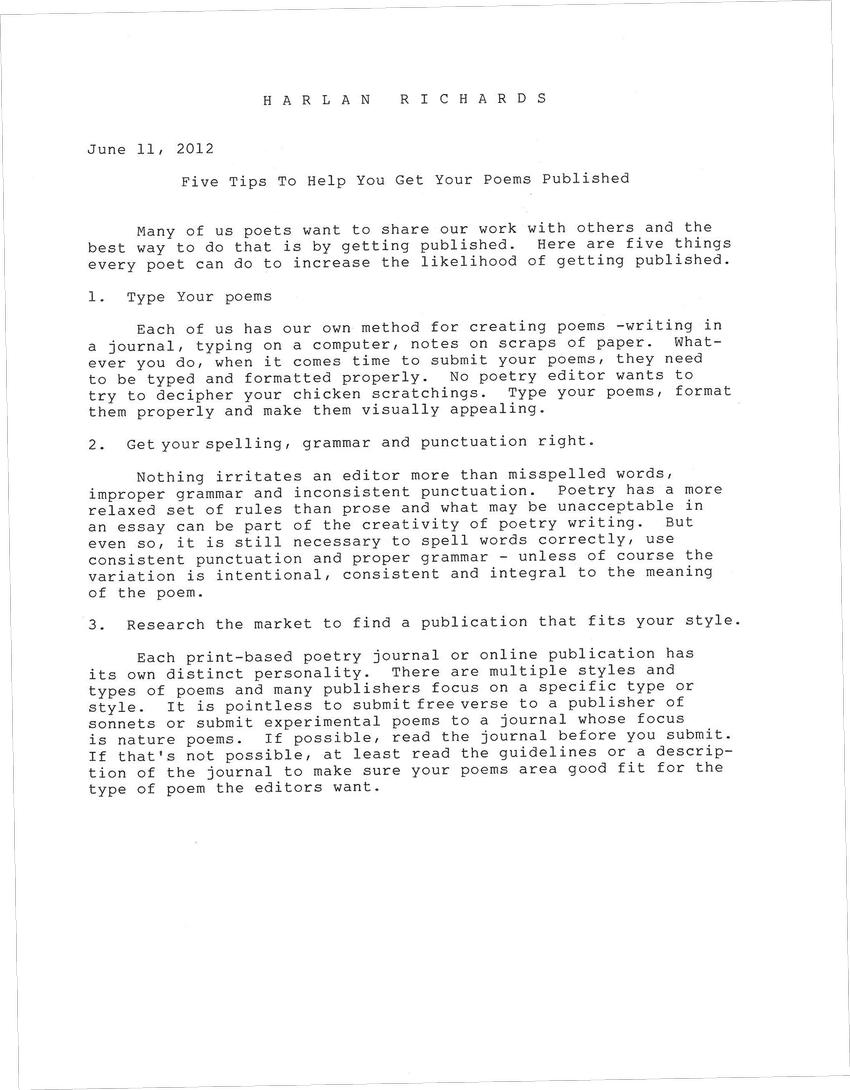
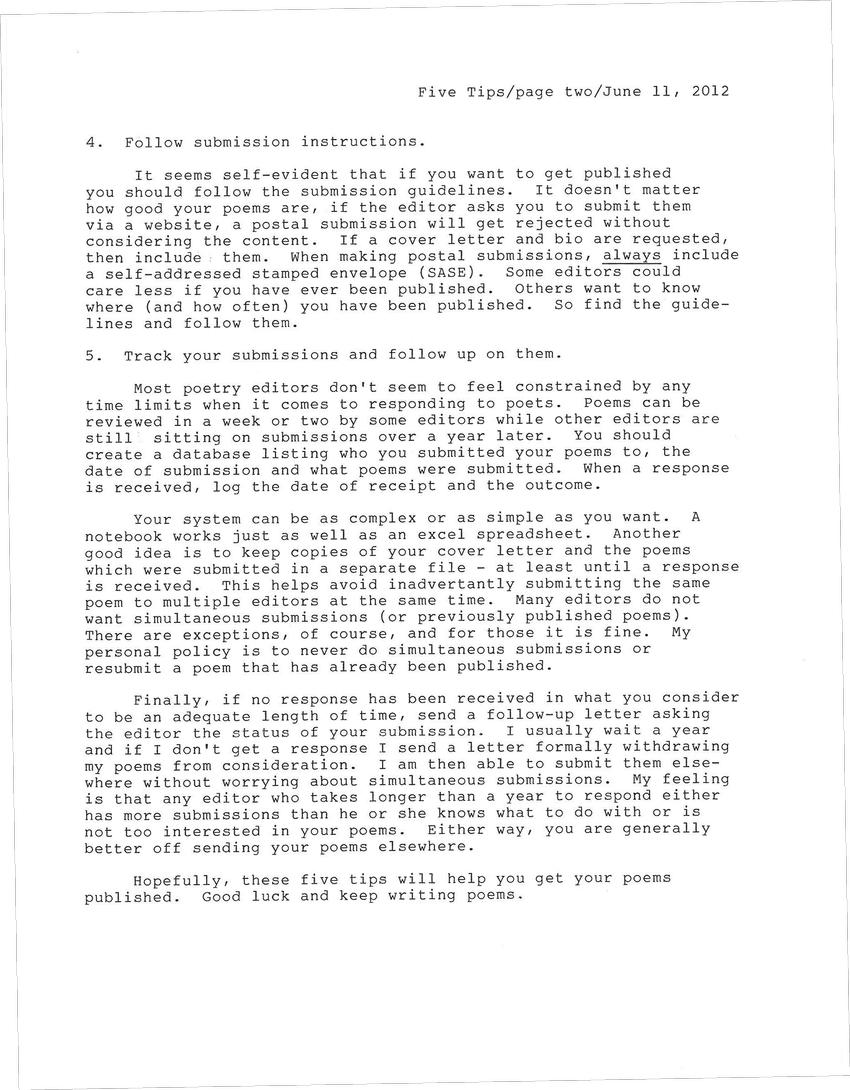

Replies